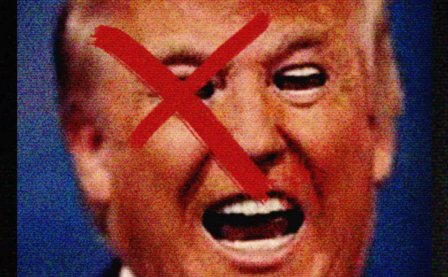As a document of a city, Los Angeles is endlessly fascinating. It takes all manner of people to come together and live there, crashing against a vast, sprawling empire of a domain. With that in mind, it is a city with gangs, with tribes and cohorts banding for commonalities within each other. There are actual criminal gangs too, and YG belongs to one. In fact, it’s one of the biggest, most illicit groups in the world. It’s an L.A. way of life. Bildungsromans don’t happen at a Vermont college; they happen at a South Central corner — if you believe YG, that is.
Rappers nowadays. It’s loaded to say. Crosses between industry plants and kids plucked from the hood at 16, Baltimore and Philly, hood, approachable? Keywords on an SEO. Trend a Twitter beef for clicks. That’ll really get the youth lit. Pop cycles sandwiched in between 300 Entertainment and TDE, another Ken doll dressed in Vetements and Supreme. Not in Compton, bro. It’s rep the set all day. Piru life, red plaid shirt, posted up on the fucking BLOCK. He won this shit. Got it made. But he’s never gonna change. No fugazi persona, always putting on for the homies. YG is classic Los Angeles through and through.
4REAL 4REAL comes back to the tropes off of which YG has made his name: his identity as a blood, the trifling antics of hoes and thots, the latent paranoia that runs in his veins, sourced from the mean streets of South Central. Pivoting from Stay Dangerous, both he and DJ Mustard dismiss any new-school technology and stay in their 64 Impala lane, complete with matching hydraulics and urethane finish. The classic L.A. cars are a perfect metaphor for the record: sleek, sexy, and undeniably impractical.
While features unsurprisingly lean on the Cali rap scene from both NorCal and SoCal, YG loves to pull on artists from all over that fit his ethos and mentality. Ty Dolla $ign, Tyga, and Boogie show up as fellow Compton brethren, while Kamaiyah and G-Eazy make appearances as Oakland’s signs of approval for the young gangster. On opposite ends of the location spectrum, DaBaby, Meek Mill, and Valee voice love from their own regions, each rapper distinctive enough to provide a reprieve from the sun-drenched atmosphere of 4REAL 4REAL.
But the album’s in tribute to a former collaborator, the late Ermias Joseph Asghedom, known to most as Nipsey Hussle. If YG’s past seems stickied to the gang history of Los Angeles, his relationship with Nipsey was framed as his future. The two were from rival gangs, the most unlikely of collaborators, joined together by a joint hatred of one Donald Trump. If YG is the soldier, Nipsey was the creator, the erstwhile craftsman of a better L.A. At the end of the album, a live speech touches on this, with YG waxing poetic about a man who wanted better for not only himself but also for his community.
The album’s sleazy underbelly is YG’s boorish treatment of women. It’s not that I expect entertainers to be moral paragons; YG’s songs about women are just clumsy from a basic storytelling standpoint, rehashing the same clichés that you’d find on a Hotep Facebook group. It stunts the flow of 4REAL 4REAL, consecrating weird values as sacrosanct among the Compton universe. But while he oftentimes plays the role of hyper-masculine rapper, he also defines his anxiety in deeply traumatic and thorough ways. He has a knack for boisterous exuberance, stressing the finer things while being relatable to regular people on every block in every town. That’s a tall order in today’s rap economy, where put-on Instagram stars shout loudly and say nothing, jockeying for memetic attention that flitters away instantaneously. YG is a true original, a superstar undeniably defined by his geography. But in between all the idiosyncrasies and candor, he’s just a dude who keeps repping his city and his people.
More about: YG




